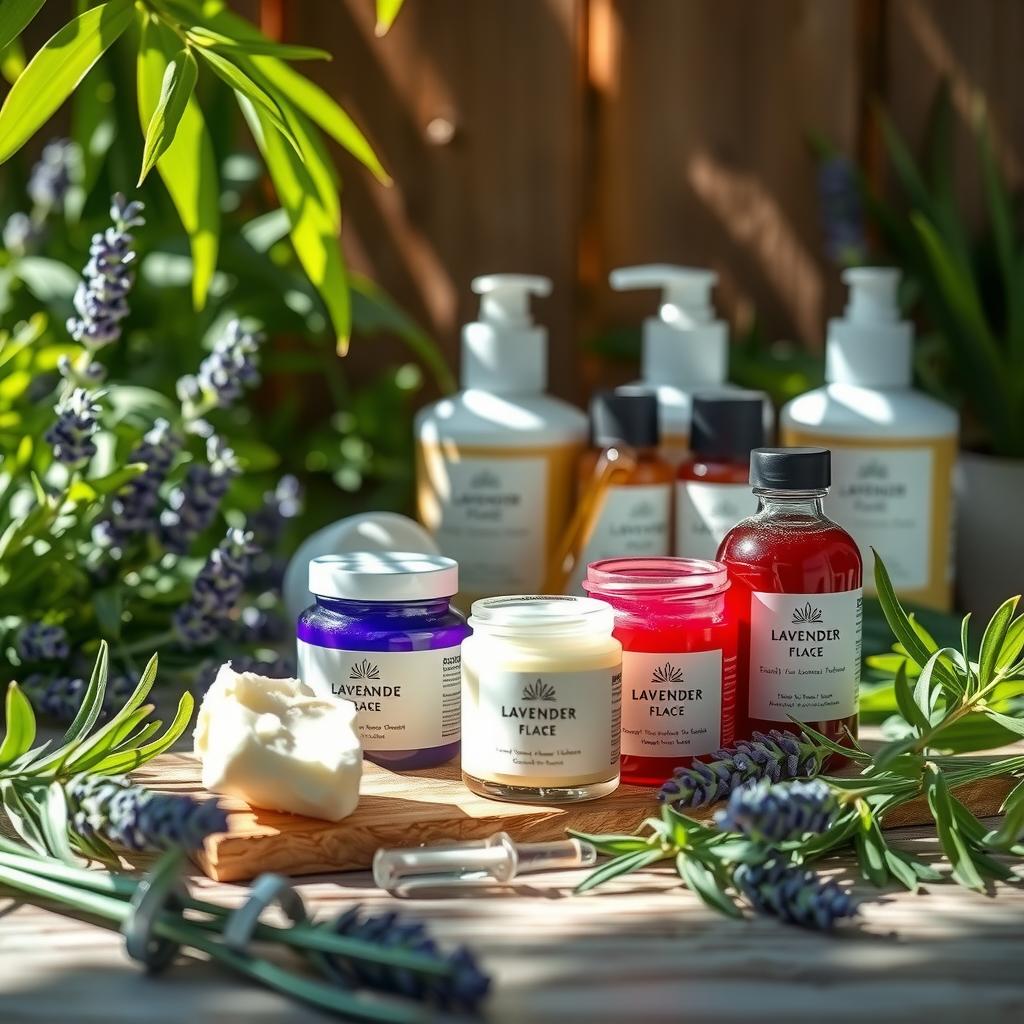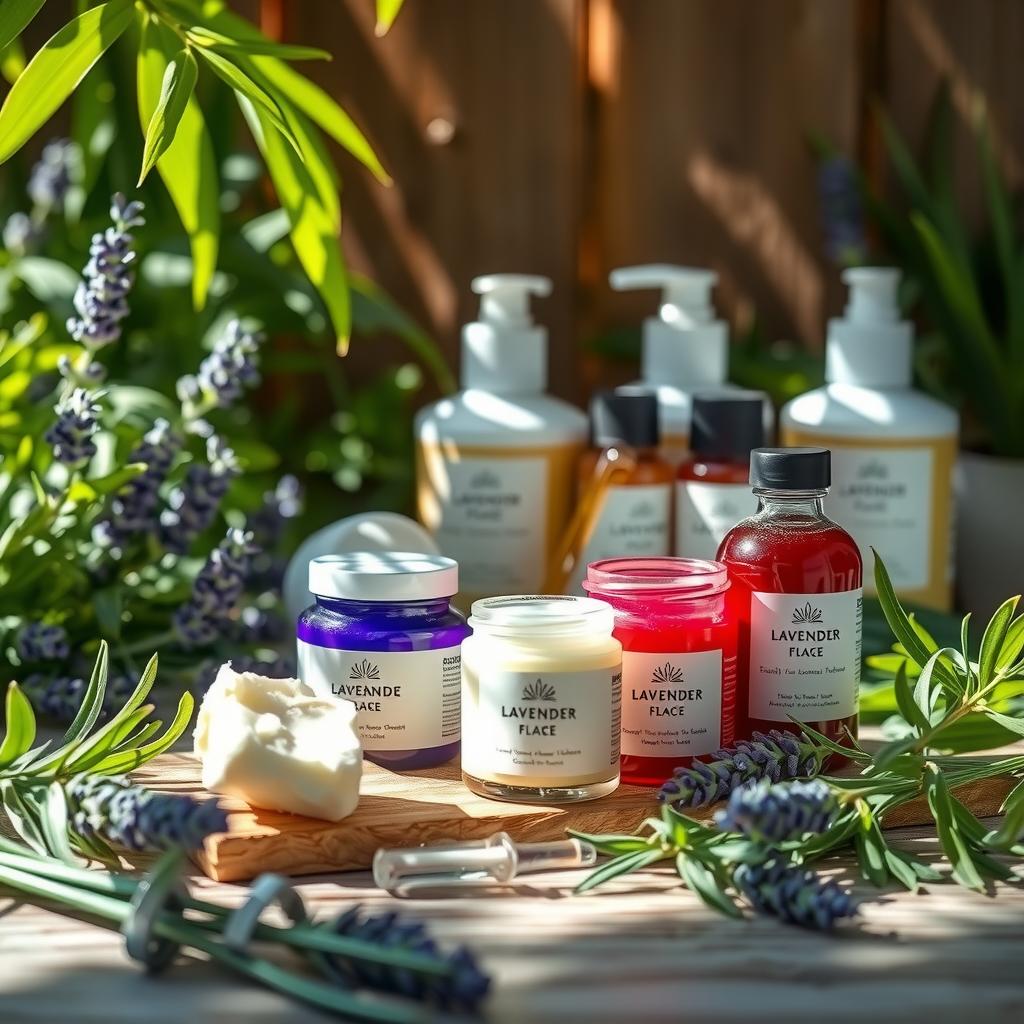In a world increasingly aware of the environmental impact of consumer choices, many individuals are reevaluating their skincare routines. The rise of organic skincare products reflects a growing concern about the effects that conventional beauty items may have on both personal health and the planet. Conventional skincare often relies on synthetic ingredients that can contribute to chemical pollution, harming ecosystems and waterways in their production and disposal processes. As consumers become more discerning, they are seeking alternatives that not only nourish their skin but also promote better environmental practices.
At the heart of this movement is a commitment to sustainability, where brands focus on using natural ingredients sourced from sustainable farming practices. These eco-conscious companies prioritize ethical sourcing methods, ensuring that their cultivation techniques do not deplete resources or harm local environments. By embracing these principles, consumers support a cycle that benefits both themselves and our planet—a crucial step toward achieving greater skincare sustainability.
Moreover, packaging plays an integral role in assessing the overall footprint of beauty products. Many organic brands are now turning to eco-friendly packaging, which significantly reduces waste compared to traditional materials. This embraces not just what goes into the product but how it reaches consumers as well—making every aspect of organic skincare a thoughtful choice towards minimizing harmful environmental effects.
By choosing green beauty options over conventional counterparts laden with harsh chemicals and non-biodegradable materials, individuals take an active stance against pollution while caring for their skin with gentle yet effective formulations. The journey toward adopting ethical products does not merely end at selecting cleaner skincare; it extends into fostering awareness about broader ecological issues tied to cosmetic consumption.
As this article delves deeper into various facets surrounding the environmental impact of organic skincare, readers will discover how these conscious decisions ripple outwards—impacting communities globally while promoting healthier lifestyles domestically. Through informed choices regarding natural ingredients and sustainable practices within skincare regimens, everyone can play a part in cultivating a greener future for generations to come.

Insights on Eco-Conscious Choices in Organic Skincare
- Reduced Chemical Pollution: The adoption of organic skincare products significantly minimizes the environmental footprint associated with chemical pollution. Conventional beauty items often contain synthetic ingredients that can leach into waterways, harming aquatic ecosystems. By opting for natural ingredients, consumers contribute to a cleaner environment and promote a healthier planet.
- Sustainable Farming Practices: Choosing organic skincare means supporting sustainable farming. These practices prioritize soil health and biodiversity, reducing reliance on harmful pesticides and fertilizers. This approach not only fosters healthier crops but also encourages ecological balance, making it an essential aspect of the broader movement towards skincare sustainability.
- Eco-Friendly Packaging Options: Another vital consideration in the realm of green beauty is packaging. Many brands committed to organic principles offer innovative solutions that minimize waste through recyclable or biodegradable materials. This shift toward more sustainable packaging options reflects a growing awareness among consumers about their purchasing choices' impact on the environment while promoting ethical products within the industry.
Understanding the Environmental Impact of Beauty Products
The Rise of Eco-Conscious Skincare Choices
In recent years, there has been a significant shift in consumer behavior as awareness about chemical pollution and its detrimental effects on both health and the environment continues to grow. This heightened consciousness has propelled the demand for sustainable beauty products, particularly those that embrace organic skincare principles. As consumers increasingly seek out solutions that align with their values, brands are responding by reformulating their offerings to include more natural ingredients and prioritize environmentally friendly practices. The move toward sustainable farming methods not only reduces harmful pesticide use but also helps maintain biodiversity, highlighting the interconnectedness between personal care choices and broader ecological concerns.
The impact of traditional cosmetic manufacturing processes is becoming more apparent, leading many individuals to reconsider their daily routines. For instance, conventional skincare products often contain synthetic chemicals that can contribute to water pollution during production or disposal stages. In contrast, brands focusing on green beauty emphasize transparency regarding ingredient sourcing and environmental stewardship. By opting for ethical products packaged in eco-friendly packaging, consumers can mitigate their own contributions to waste while supporting companies committed to sustainability.
Moreover, the trend towards organic formulations extends beyond mere ingredient selection; it encompasses an entire philosophy rooted in respect for nature and holistic well-being. Many consumers now view skincare sustainability as integral not just to personal health but also to global environmental efforts. This shift is evident in how brands market themselves—highlighting commitments such as cruelty-free testing practices or carbon-neutral shipping methods—further attracting eco-conscious buyers who prioritize ethical consumption.
As manufacturers adapt by incorporating biodegradable materials into packaging designs or developing refillable product systems, they demonstrate an understanding of both consumer demands and ecological responsibilities. These innovations illustrate a growing recognition that beauty should not come at the expense of our planet's health; rather it should enhance individual well-being while preserving natural ecosystems for future generations.
In conclusion, this movement towards organic skincare reflects a broader societal transformation where informed choices resonate deeply within communities dedicated to promoting environmental integrity. With every purchase made by conscious consumers leaning toward these alternatives over conventional options laden with harmful chemicals, they play an essential role in fostering a culture that prioritizes long-term sustainability over short-lived convenience—a powerful testament to how collective action can lead us closer toward achieving harmony between self-care rituals and planetary health.
The Impact of Sustainable Farming on Skincare Ingredients
Nurturing Nature for Healthier Beauty Solutions
Sustainable farming practices play a crucial role in promoting skincare sustainability while combating the adverse effects of traditional agriculture. By employing methods such as crop rotation, organic fertilizers, and permaculture, farmers can cultivate natural ingredients that are not only effective but also environmentally friendly. These practices significantly reduce chemical pollution, which is often associated with synthetic alternatives in skincare products. For instance, when farms prioritize biodiversity by planting diverse crops instead of monocultures, they enhance soil health and promote a balanced ecosystem. This approach ultimately leads to higher-quality botanical extracts rich in vitamins and antioxidants essential for nourishing skin health.
Cultivating Natural Ingredients Through Eco-Friendly Methods
Emphasizing Ethical Choices for Conscious Consumers
The adoption of eco-friendly farming techniques directly supports the production of high-quality natural ingredients used in green beauty products. Techniques like agroforestry allow different plant species to thrive together harmoniously, resulting in potent botanicals that boost both skin vitality and environmental resilience. As consumers become more aware of their choices' impact on the planet, they gravitate towards brands that emphasize ethical sourcing and transparency regarding their ingredient origins. Utilizing these sustainable farming practices means companies can proudly offer formulations devoid of harmful chemicals while ensuring minimal ecological disruption—a win-win scenario for both consumers seeking ethical products and farmers striving to protect our planet's future.
The Intersection Between Sustainability and Efficacy
Crafting Beauty Solutions That Benefit All
Integrating sustainable farming into skincare production does not compromise efficacy; rather, it enhances it by focusing on the purity of natural components derived from well-maintained ecosystems. When skincare brands commit to using responsibly sourced materials packaged sustainably—eco-friendly packaging—they align themselves with consumers’ desires for holistic wellness options without sacrificing quality or performance. Furthermore, processes like cold pressing ensure that active compounds remain intact during extraction from plants grown under sustainable conditions, maximizing benefits while minimizing wastefulness inherent in conventional manufacturing approaches.
A Call to Action: Supporting Sustainable Practices
Empowering Change Through Consumer Awareness
As awareness around the importance of reducing our collective environmental impact grows stronger within society today, so too does the responsibility placed upon consumers to advocate for change within industries like beauty care. By supporting brands dedicated exclusively to utilizing resources obtained through sustainable farming methods—whether it's through purchasing decisions or spreading awareness about their proven benefits—individuals contribute positively toward fostering a healthier planet along with personal well-being via access to superior organic skincare. Recognizing how interconnected our choices are encourages a mindset shift where every purchase becomes an opportunity—not just another transaction—but rather an investment into long-term planetary health.
Making Informed Choices in Skincare
Embracing Organic Solutions for Personal Wellness and Environmental Health
In today’s world, the choices individuals make regarding personal care products can have profound implications for both personal well-being and the health of our planet. The rise of organic skincare options has brought to light an essential consideration: how these products not only enhance individual wellness but also contribute significantly to a cleaner ecosystem. By opting for skincare solutions that prioritize natural ingredients, consumers are making informed decisions that align with principles of sustainability and eco-responsibility.
The environmental impact of conventional beauty products is often overlooked. Many traditional items contain harmful chemicals that contribute to chemical pollution, affecting ecosystems upon disposal. In stark contrast, organic skincare formulations typically employ safe, biodegradable substances derived from nature, thus minimizing their ecological footprint. These products embrace sustainable farming practices that protect biodiversity while supporting ethical sourcing methods—ensuring that every ingredient used is not just beneficial for individual skin health but also responsible towards the environment.
Moreover, adopting a routine centered around green beauty means embracing packaging innovations as well. Many brands committed to skincare sustainability have shifted toward using eco-friendly packaging materials, reducing plastic waste and promoting recyclability. This conscientious approach resonates deeply with environmentally aware consumers who seek alternatives to traditional packaging solutions known for clogging landfills and oceans alike.
Additionally, the use of natural ingredients in organic skincare doesn’t merely benefit ecological systems; it offers countless advantages for users' skin health as well! Products crafted from botanical extracts often lack synthetic fillers or harsh preservatives found in their conventional counterparts—leading to fewer irritations or allergic reactions among users. Thus, those choosing organic are likely reaping benefits such as improved hydration levels and balanced complexions without compromising safety or efficacy.
Ultimately, selecting ethical products fosters a more holistic understanding of personal care routines within broader environmental contexts. Each purchase becomes a statement: one advocating not just self-care but collective responsibility towards maintaining harmony between humans and nature through conscious consumerism practices like prioritizing organic options over chemically laden alternatives.
By choosing wisely when it comes to skincare selections—from ingredient origins down to manufacturing processes—individuals can create ripples of change throughout the beauty industry landscape while enhancing their own quality of life with superior product performance rooted firmly in respect for both people and planet alike.
Frequently Asked Questions:
Q: How does choosing organic skincare products help reduce chemical pollution?
A: Selecting organic skincare products significantly minimizes chemical pollution in the environment. These products are formulated without synthetic chemicals, which can be harmful to ecosystems when they wash off during cleansing or application. By opting for formulations made with natural ingredients, consumers contribute to less toxin runoff into waterways, promoting healthier aquatic life and reducing overall environmental degradation.
Q: What role do sustainable farming practices play in organic skincare?
A: Sustainable farming practices are integral to the production of organic skincare items. Unlike conventional agriculture, which often relies on harmful pesticides and fertilizers, sustainable methods focus on maintaining soil health and biodiversity. This approach not only protects local wildlife but also ensures that the raw materials used in crafting these beauty products are grown in an environmentally responsible manner. As a result, consumers supporting this practice help foster a more balanced ecosystem while enjoying high-quality skin care solutions.
Q: In what ways is eco-friendly packaging important for green beauty?
A: Eco-friendly packaging is crucial to the concept of green beauty, as it addresses waste reduction associated with traditional packaging materials. Many brands committed to sustainability use biodegradable or recyclable options that lessen their carbon footprint and promote responsible disposal habits among consumers. When individuals choose organic skincare featuring such thoughtful packaging, they align themselves with broader efforts toward environmental conservation—making choices that reflect their commitment to both quality skin care and preserving our planet's resources.

